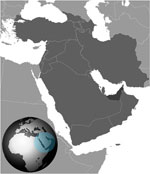
The UAE is perfectly positioned to act as not only a Middle Eastern regional business hub, but global gateway. This has been driven by massive economic growth, development and diversification over the last decades, firmly establishing the UAE as one of the world's most attractive investment location. This is backed by an ideal geographical position, excellent infrastructure, stable legal/political setup, and a dynamic lifestyle.
Key advantages of the UAE include:
|
Population |
8.19 million 16.5% Nationals |
|
Capital City |
Abu Dhabi |
|
GDP Growth |
4% (2013) |
|
GDP (PPP) |
$269.8 billion |
|
GDP Per Capita |
$29,900 |
Full Name: United Arab Emirates (UAE)
Political System: Political System: Constitutional Federation (Abu Dhabi, Dubai, Sharjah, Ajman, Umm al- Qaiwain, Ra's al- Khaimah and Fujairah)
National Day: 2nd December 1971
Founder: The Late Sheikh Zayed bin Sultan Al Nahyan
President: H.H. Sheikh Khalifa bin Zayed Al Nahyan (Ruler of Abu Dhabi)
Vice President & Prime Minister: H. H. Sheikh Mohamed bin Rashid Al Maktoum (Ruler of Dubai)
Other Rulers:
Sharjah: H. H. Dr. Sheikh Sultan bin Mohammed Al Qasimi.
Ajman: H. H. Sheikh Humaid bin Rashid Al Nuaimi.
Umm al-Qaiwain: H. H Sheikh Saud bin Rashid Al Mu'alla
Ra's al-Khaimah: H. H. Sheikh Saud bin Saqr Al Qasimi
Fujairah: H. H Sheikh Hamad bin Mohammed Al Sharqi
Area: 83,600 Sq. km. (Slightly bigger than Scotland).
Location: Bordered to the North by the Arabian Gulf, to the East by the Gulf of Oman and Sultanate of Oman, to the South by Saudi Arabia and Sultanate of Oman and to the West by Qatar and Saudi Arabia.
Climate: Arid Desert, cooler in the eastern mountains. (Winter: warm & sunny / Summer: hot and humid)
Natural Resources: Petroleum, natural gas
Population: 8.19 million, 16.5 % Nationals (source: The National Bureau of Statistics, UAE)
Capital: Abu Dhabi
Largest City: Dubai
Monetary Unit: UAE Dirham 1AED = 100 Fills
Exchange Rate: 1 USD = AED 3.67 (Pegged to the US Dollar)
Fiscal Year: 1st January to 31st December
Weekend: Friday and Saturday
Official Language: Arabic
Other Languages: language widely spoken do to the diverse expatriate population, including English, Farsi, Hindi, Urdu, French, Russian
Religion: Islam (Practice of all religious beliefs is allowed)
Literacy rate: 93%
Time: GMT +4 (Daylight Saving Time +3)
International Dialing Code: +971
Internet Domain: ae
The UAE's economy is both diverse and expansive. As the world's eighth largest oil producer, it maintains a free-market economy with minimal restrictions on private-sector activities, international trade and capital movements. Today, the UAE's per capita GDP is on par with those of leading West European countries, together with a sizable annual trade surplus.
High oil revenues and a moderate foreign policy stance have allowed the UAE to play a pivotal role in Middle Eastern affairs, as well as in global commerce. Since the discovery of oil in the 60s, the UAE has adopted a prudent economic policy based on diversification and openness. The country has since undergone major transformation to become an ultra-modern state and with a high standard of living.
Successful efforts at economic diversification have reduced the portion of GDP based on oil and gas output to 25% and paved the way for a sustainable economic future. This includes significant investments in job creation - for nationals and expatriates - and infrastructure development, whilst making the country one of the most attractive foreign business and investment destination in the world. The UAE's strategic plan for the next few years continues to focus on diversification and creating more opportunities through improved education and increased private sector employment. Key industry and business sectors in the UAE now incorporate:

"In order to build sustainable cross-cultural business relationships in the UAE, GCC and wider Middle East, all companies must first build a strong relationship based on mutual trust and respect before moving to details of any negotiation and business interaction."
- Novelty Group
Business in the Middle East is indeed unique. Although changing with the times, modernising and adopting new innovative approaches, it is still very much entrenched in traditions. Doing business in the UAE, GCC and wider Middle East region can be a unique experience. Although there are of course similarities in business dealings with many other countries around the world, there are also certainly some differences in a number of key business areas, namely in culture & customs, local market characteristics and demographics, buying behaviours and trends, corporate structures and formalities, as well as professional business negotiations.
When aspiring to enter and venture into Middle Eastern markets, a strategic and carefully considered approach must be taken. Hence the importance of a local expert partner agent.
In Middle Eastern culture, honour and trust are the foundations of both life and business. Both are earned through repeated social interactions and very much emotional based. Understanding the business culture and sense of self-worth is very important when negotiating new business relationships, and of course in maintaining them.
Further information on the UAE's economy is available at the UAE Ministry of Economy website and through each Emirate's Department of Economic Development:
Chambers of Commerce in the UAE
Chambers of Commerce in each emirate are invaluable sources of information and assistance for anyone intending to do business in the country: they keep investment databases, issue and authenticate licences and other documentation, arbitrate on disputes and provide business facilities, such as meeting and conference rooms.